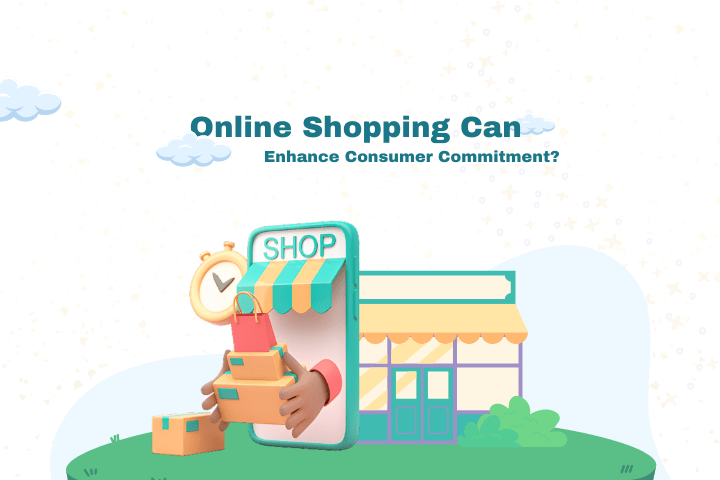Online shopping has become a suitable way for consumers to purchase products and services. With just a few clicks, consumers can order anything they want from the comfort of their residences. Yet, as online shopping becomes more prevalent, businesses must focus on building relationships with their consumers to foster loyalty and repeat business. This article will explore how online shopping can enhance consumer commitment and build strong customer relationships.
Personalized Shopping Experience
One of the most significant advantages of online shopping is the ability to offer personalized experiences to consumers. By tracking customer behavior and purchasing history, online shops can tailor product recommendations and promotions to each individual’s preferences. For example, if a customer frequently buys running shoes, the website can recommend new running shoes or running gear. This creates a sense of personalization and helps consumers feel understood and valued.
Efficient and Convenient Customer Service
Online shops can also provide efficient and convenient customer service through chatbots, email, and phone support. Consumers appreciate quick and easy resolutions to their inquiries and complaints. Online shops can build trust and a positive reputation with their consumers by providing responsive and helpful customer service.
Rewards Programs and Discounts
Many online shops offer rewards programs or loyalty discounts to incentivize repeat business. These programs can include cash-back or points-based systems that accumulate over time and can be redeemed for deals or free products. By rewarding consumers for loyalty, online shops can create a positive relationship and foster repeat business.
High-Quality Product Selection
Online shops have the advantage of offering a more comprehensive selection of products compared to brick-and-mortar stores. By curating a selection of high-quality and niche products, online shops can attract consumers looking for specific products that might not be available elsewhere. A unique, high-quality product selection can help create exclusivity and build shopper commitment.
Social Media Engagement
Social media is a powerful tool for building relationships with consumers. Online shops can use social media to showcase their products, provide behind-the-scenes glimpses of their operations, and personally engage with consumers. By responding to comments and messages on social media, online shops can demonstrate that they care about their consumers and are willing to go the extra mile to provide an optimistic shopping understanding.
Also Read: Digital Work in the Age of Industry 4.0
Advantages of Using Online Shops to Improve Consumer Loyalty
- Convenience: Convenience is one of the most significant advantages of using online shops to improve shopper commitment. Consumers can shop from their homes or anywhere they have internet access. They can browse products, read reviews, and make purchases with a few clicks of a button. This convenience saves consumers time and effort, likely increasing their loyalty to the business.
- Personalization: Online shops offer a more personalized shopping experience than traditional brick-and-mortar stores. Consumers can receive targeted product recommendations based on their previous purchases or browsing history. This personalization can help consumers feel valued and appreciated, leading to increased loyalty.
- Accessibility: Online shops are accessible 24/7, making it easy for consumers to shop whenever they want. This accessibility can significantly appeal to busy-conscious consumers who cannot visit traditional stores during regular business hours.
- Competitive Pricing: Online shops often offer competitive pricing due to lower overhead costs. Consumers are likelier to remain loyal to businesses that provide reasonably priced products.
- Customer Service: Many online shops offer excellent customer service, which can significantly build shopper commitment. Online businesses often have dedicated customer service teams that can quickly address customer concerns or issues, increasing customer satisfaction and loyalty.
Disadvantages of Using Online Shops to Improve Consumer Loyalty
- Lack of Physical Interaction: One significant disadvantage of using online shops to improve shopper commitment is the need for physical interaction. In traditional stores, consumers can interact with products before purchasing them, which can be an essential part of the decision-making process. Online shops can offer a different experience, which may make consumers feel disconnected from the products they purchase.
- Shipping Times: Shipping times can be a significant disadvantage of using online shops to enhance consumer commitment. Consumers may have to wait several days or weeks to receive their purchases, which can be frustrating and discouraging. Long shipping times can also make consumers more likely to seek alternative options.
- Security Concerns: Online shopping can also raise security concerns for consumers. Consumers may worry about their personal and financial information safe when purchasing online. Security breaches can damage consumer commitment and trust in a business.
- Product Quality: consumers need to examine the quality of products before purchasing them online, which can be a significant disadvantage. Consumers may receive products that meet their expectations, leading to satisfaction and reduced loyalty.
In conclusion, online shops have many tools to enhance consumer commitment and vital connections. By personalizing experience, providing efficient consumer service, offering rewards and discounts, curating a high-quality product selection, and engaging with consumers on social media, online shops can create a positive and memorable experience. This fosters loyalty and encourages consumers to recommend the online shop to friends and family, leading to new business and continued growth.




